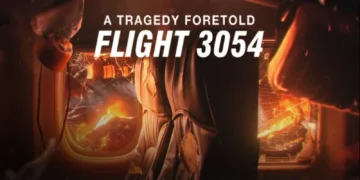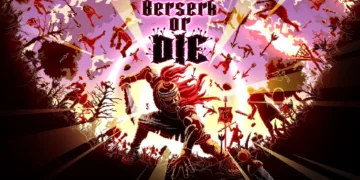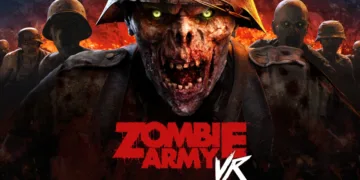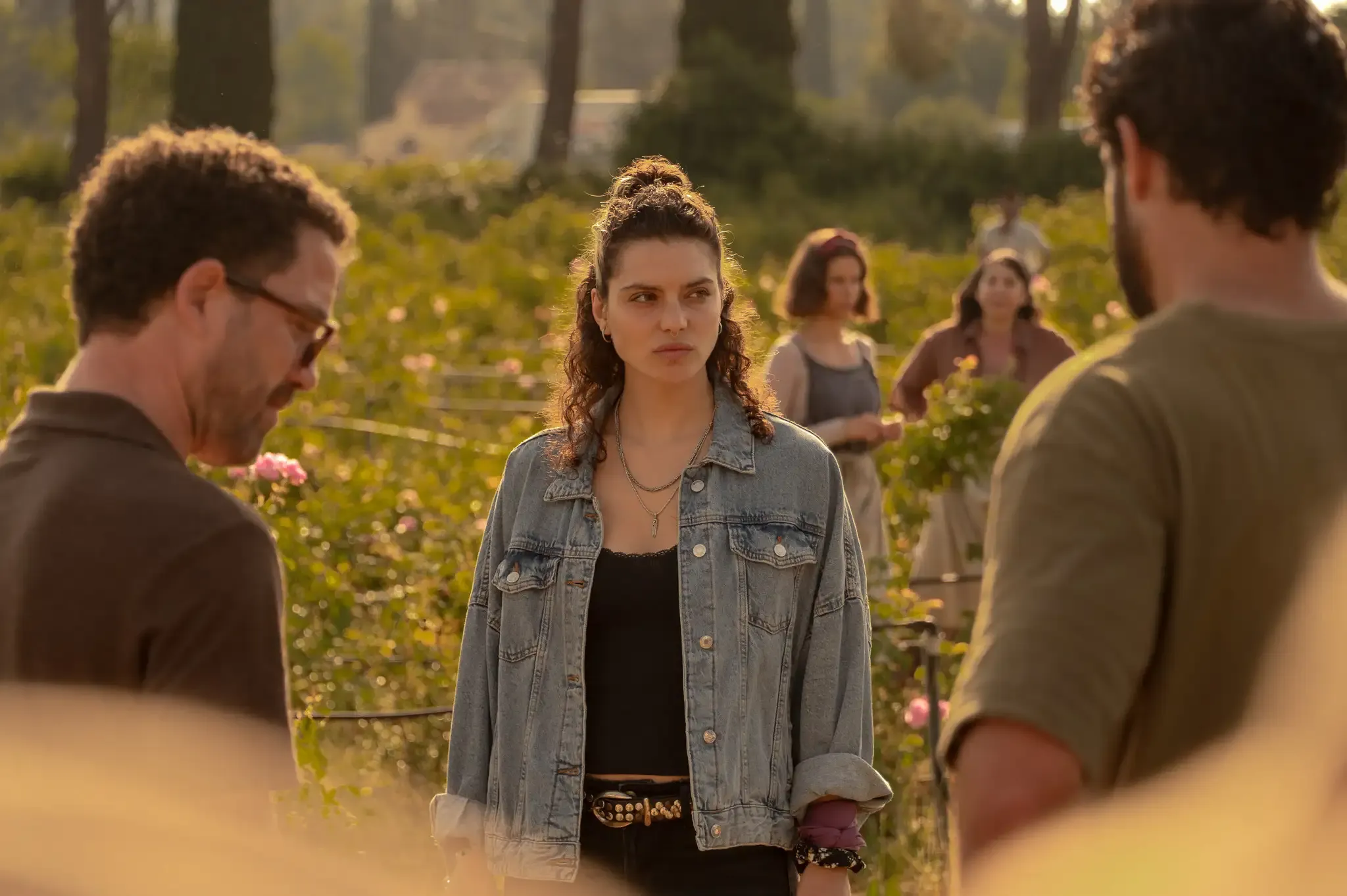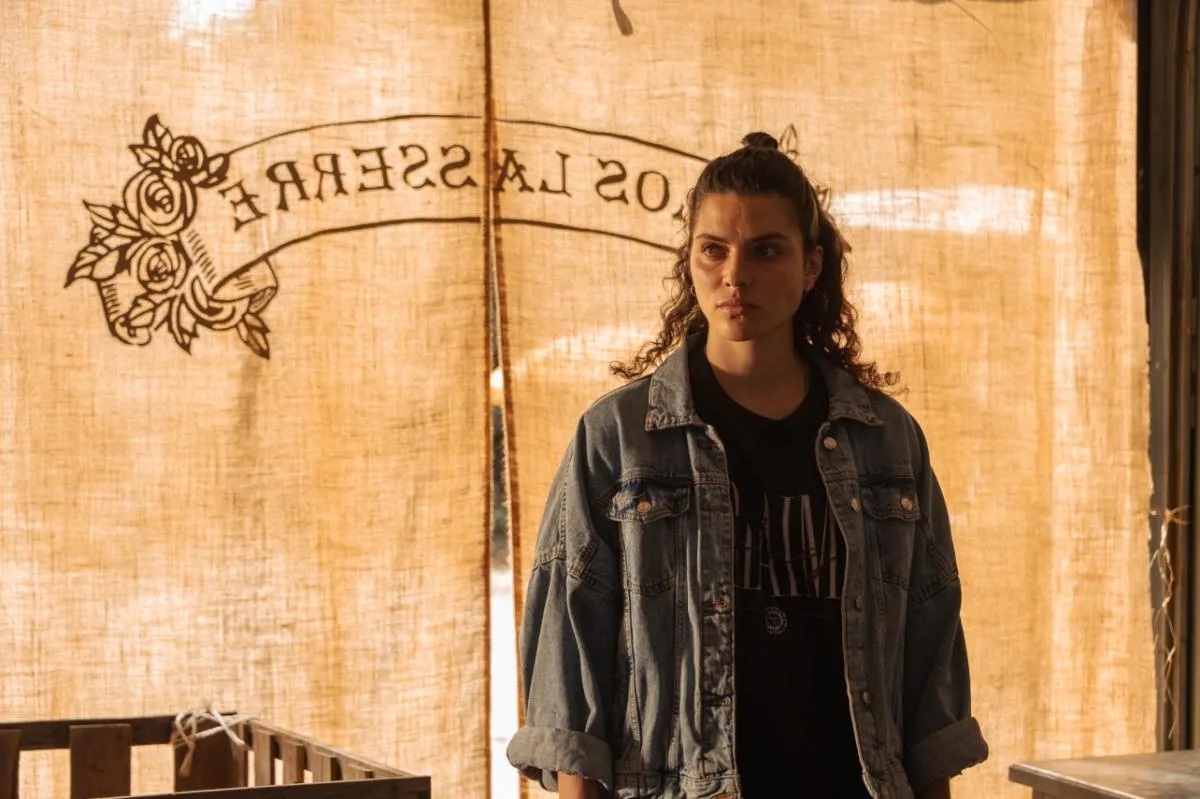French thrillers have a certain style, a promise of tangled histories and simmering passions set against a chic, moody backdrop. Under a Dark Sun opens by delivering exactly that. We meet Alba Mazier, a young mother whose frantic escape from an unseen past leads her and her son, Leo, to a sprawling flower farm.
She’s there for a job interview she never arranged. The farm’s patriarch, Arnaud Lasserre, hires her anyway. This could be a story of provincial charity, except Arnaud is murdered the next day, and a witness saw Alba fleeing the scene. The police have their prime suspect.
The hook sinks deeper when Arnaud’s will is read: he has named Alba, his secret biological daughter, as heir to a quarter of his estate. Suddenly, a woman running from her past has a multimillion-euro reason to be a killer.
The Plot Thickens, Then Curdles
The series begins with a fantastic engine for drama, a classic whodunit setup inside a dysfunctional family dynasty. For an episode or two, the machinery runs beautifully. Then, the narrative puts its foot on the accelerator and never finds the brake, becoming a textbook example of a streaming-era thriller that mistakes hyperactivity for suspense.
The plot is not so much written as it is fired from a cannon. Developments that could sustain an entire season in a lesser show are introduced and discarded within a single episode. Alba is buried alive in a coffin beside her newfound father; she discovers a secret DVD with incriminating evidence and then promptly leaves it behind in a moment of baffling carelessness. A subplot involving a character named Valentin appears from nowhere, briefly hijacks the story, and then vanishes with no real purpose.
This frantic pace is amplified by the show’s technical construction. The editing favors rapid cuts and the score is a relentless thrum, both working to prevent any emotional beat from landing. There is no time for grief, fear, or contemplation.
The story is a narrative treadmill set to an impossible speed, forcing the viewer to keep running just to stay in place. The constant introduction of new secrets—secret passages, secret affairs, secret identities—serves only to muddy the central question. The effect is a story that becomes a chaotic cascade of information, where the sheer volume of twists makes each one feel insignificant.
One Funeral, One Pink Suit, and a Star Turn
Amid the plot’s chaos, a few performers manage to anchor the madness. Ava Baya gives Alba a fierce, hunted intensity; she is believable as a mother pushed to her limits, displaying a startling, unexplained aptitude for action-hero mechanics when the situation demands it.
She carries the emotional weight of the show on her shoulders. But the series truly belongs to French cinema icon Isabelle Adjani as the family matriarch, Beatrice. Realizing she is in a show that has spun off its axis, Adjani decides to have an absolute ball.
Her Beatrice glides through the proceedings with a magnificent, comic indifference to her husband’s demise. She arrives at his funeral in a hot pink suit and delivers a eulogy she admits was written by an AI. It is a performance of sublime, self-aware camp.
She provides a necessary spark that the other characters, who feel like archetypes borrowed from a dozen other family sagas, cannot. There is the alcoholic elder son, Mathieu, drowning his sorrows in liquor and random women.
There is the younger sister, Lucie, who speaks of radical change but feels more like a vague sketch of discontent. Even the potentially rich relationship between Alba and her son, Leo, is reduced to a plot device, his questions and tantrums existing only to create minor obstacles. The script is too busy with its next revelation to explore these people.
Identity Crisis on a Flower Farm
The series feels like two separate shows fighting for screen time. One is the high-stakes crime drama the premise promises, shot with the oversaturated, self-serious look of many European thrillers. The other is the absurdist dark comedy that Adjani single-handedly creates whenever she appears.
This tonal collision gives the series its most distinctive, if perplexing, quality. The juxtaposition is jarring: a grim scene of Alba escaping a locked room might be followed by Beatrice coolly critiquing the funeral flower arrangements. While some modern television masterfully fuses disparate genres, here the effect feels less like a deliberate artistic choice and more like a happy accident.
It is as if the director pointed the camera at a legendary actress and she simply decided to invent a more interesting show for herself on the spot. This makes the series fascinating for reasons the writers likely never intended, offering a strange relief from the frantic, often humorless, main plot. It has a serious face, but its eyes are giggling.
An Ending in Need of an Ending
After six episodes of running at full tilt, the series does not so much conclude as it just collapses from exhaustion. The finale feels less like a resolution and more like a deadline was met. The reveal of the person responsible for the murder comes from so far out of left field it might as well be from another show entirely, a last-minute decision designed for shock value that produces none.
Key characters disappear without explanation. Emotional through-lines are simply dropped. Viewers who diligently tracked the labyrinthine plot are not rewarded with a clever untangling; they are simply abandoned in the mess. The show builds a massive, complicated narrative machine full of gears and pulleys, only to forget to turn it on. The greatest mystery the show leaves behind is not who killed Arnaud, but why we were made to care in the first place.
Full Credits
Director: Marie Jardillier, Edouard Salier
Writers: Nils-Antoine Sambuc, Thomas Colineau, Camille Couasse, Marine Lachenaud, Claire le Luhern, Jules Lugan
Producers: Anthony Lancret, Pierre Laugier
Executive Producers: Lisa Alford, Oliver De Caigny, Andrew C. Erin, Timothy O. Johnson, Carley Smale, Michael Vickerman
Cast: Isabelle Adjani, Ava Baya, Louise Coldefy, Guillaume Gouix, Thibault de Montalembert, Claire Romain, Simon Ehrlacher, Nicolas Vaude, Muriel Combeau
Director of Photography: Michael Tien
Editors: Russ Howard III
Composer: Erick Schroder, Rajetha Kalatharan
The Review
Under a Dark Sun
Under a Dark Sun starts with a fantastic premise but quickly buries it under an avalanche of pointless twists. The series sprints through its story at such a breakneck speed that nothing has a chance to land, sacrificing character depth and narrative coherence for cheap, fleeting shocks. While Ava Baya is a capable lead, the show is stolen by Isabelle Adjani’s wonderfully strange performance, which feels like it belongs in a much smarter, funnier series. It is a frustrating watch that mistakes plot for purpose, ending with a thud rather than a revelation.
PROS
- A strong, immediately gripping central mystery.
- Isabelle Adjani delivers a memorable and comedic standout performance.
- Ava Baya is a compelling and intense lead actress.
- The fast pace can be entertaining for a quick binge.
CONS
- The plot is overly convoluted and tangled with illogical twists.
- An unsatisfying and rushed ending that resolves very little.
- Supporting characters and key relationships feel underdeveloped.
- The tone shifts awkwardly between serious thriller and dark comedy.





























